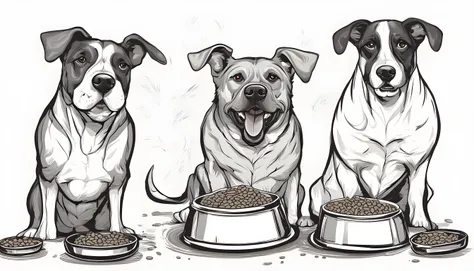We are pleased to present the forty-third edition of our information service on events in the world of competition law in November and December 2023. Once again, this is a purely subjective selection of events that we think may be of interest to you.
Ex post, we would like to wish you good luck, good health and personal and professional successin 2024 with a selection of competition highlights from the end of 2023. To celebrate the new year with you, we have selected examples to show that competition and sport are very close, that there are other types of cartels than the classic price cartels, and that prohibited vertical agreements are not only about resale price maintenance, even if it sometimes seems that way.
Sports competition
The end of 2023 must have satisfied many a sports fan among the competition lawyers. The Court of Justice issued three judgments concerning the application of competition law in professional sport.
Perhaps the most eagerly awaited decision was the ruling on the football Super League case. In 2021, 12 football clubs (6 from the Premier League, 3 from La Liga and 3 from Serie A) announced the creation of a Super League. This was to become a competitor to the UEFA Champions League. FIFA and UEFA reacted very quickly by threatening to apply sanctions against clubs and players who decided to participate in the Super League. In doing so, they referred to their rules that any inter-club competition was subject to their prior approval.
In addition to football, the Court of Justice also considered similar rules adopted by the International Skating Union (ISU), the governing body of speed skating and figure skating. Those rules restricted the participation of skaters in competitions not sanctioned by the ISU, with the sanction of a ban on participation in competitions organised by the ISU, which is the only skating association recognised by the International Olympic Committee (a ban would make it impossible for a skater to participate in the Olympic Games). In doing so, the ISU has excluded potential competing projects.
In both cases, the Court of Justice recognised that sports federations may adopt rules which they can enforce under threat of sanctions. However, such rules must be transparent, objective, non-discriminatory and proportionate, otherwise they may exclude competitors from the market and restrict the organisation of new sporting competitions. In both cases, this was not the case because the rules were completely arbitrary.
Another conduct of a sports federation under review was the UEFA or the Belgian football federation rules that determine the minimum number of “homegrown” players on the squad. “Homegrown” players are players who, between the ages of 15 and 21, have been trained for at least three years by the club that has included them on the list or by another club from the same national or Belgian football federation. According to the Court, this rule restricts the ability of clubs to compete by recruiting talented players, regardless of where they have been trained.
If you are more interested in this topic, check out what Robert has to say (in Czech) about it on the Sport Alive podcast, which devoted an hour and a half to the topic of antitrust in sport. In addition to the aforementioned cases, the discussion revolved around the sale of broadcasting rights for football and ice hockey, the UFC controversy and the new regulation of football agents.
Cartels are not just about price coordination
The European Commission has fined ethanol producer Lantmännen EUR 47.7 million for participating in a cartel affecting the wholesale ethanol pricing mechanism in Europe. The aim of the cartel was to artificially increase, maintain and/or prevent a reduction in the level of Platts’ ethanol reference prices (benchmarks). The latter provides price estimates for various commodity markets based on prices during a specific time window during the day (in this case from 16:00 to 16:30 in the port of Rotterdam). The cartel members agreed to limit the physical presence of ethanol in Rotterdam that could fall within this time window.
The Dutch Competition Authority fined four carrot growers for dividing the market for the supply of carrots to canning and frozen-food companies in Germany, Belgium and the Netherlands according to the type of carrot. They agreed that three of them would produce only the classic longish carrot and one (Veco) only the round Paris carrot, which is preferred in Germany. As Veco suffered a financial loss as a result of this agreement, compensation payments were also agreed for Veco. These were indeed made.
Prohibited distribution agreements
The year 2023 cannot be concluded without some news from the world of vertical (distribution) agreements. Although we will look abroad this time, it is worth remembering that vertical agreements played a major role in the activities of the Czech Competition Authority throughout the year.
The French competition authority has focused in particular on restricting online sales of high-end products. The French manufacturer of premium tea blends, Mariage Frères, banned retailers from selling its products online. It reserved all online sales to itself. Retailers were allowed to state on their websites that they sold the brand, but were not allowed to use the Mariage Frères logo. According to the retailers, the opportunity to sell online would have increased their sales by 30%. The French competition authority imposed a fine of EUR 4 million for this.
A slightly higher fine of EUR 91.6 million was imposed by the same authority on watchmaker Rolex for restricting online sales. Rolex justified the ban on online sales of its watches on the grounds of combating counterfeiting and parallel imports into its selective distribution system. However, according to the competition authority, its main competitors face the same risks and nevertheless allow internet sales under certain conditions. It therefore considers that the same objectives can be achieved by less restrictive means.
This does not mean, however, that luxury goods manufacturers have to tolerate harm to their name caused by inappropriate presentation on the internet. The new 2022 rules on vertical agreements allow for some significant restrictions. It is advisable to consult a competent expert.
There was also a decision on resale prices at the end of the year, but surprisingly not by the Czech Competition Authority. The Belgian competition authority fined cast iron cookware manufacturer Le Creuset EUR 490,112 (after settlement) for setting “recommended” prices. Le Creuset monitored the compliance with the “recommended” prices and enforced it through pressure tactics and sanctions. In addition, Le Creuset also monitored retailers’ promotional activities and provided individual retailers with information about their competitors, in particular about price changes that had been made or were planned.
The procedural corner
The end of the year was “celebrated” by the Czech Competition Authority with the publication of two new methodologies for the imposition of fines: Notice on the Procedure for Imposing Penalties (fines and prohibitions on participation in public procurement) and Notice on Compliance Programmes.
In terms of fines, the Czech Competition Authority has heard complaints that resale price maintenance is subject to fines as high (if not higher) than those for much more harmful hardcore cartels. However, it has responded not by significantly reducing fines for resale price maintenance, but by dramatically increasing fines for cartels: to 10-30% of the annual turnover of the undertaking concerned. The same level of fines is now threatened also for any abuse of a dominant position.
With regard to the recognition of a compliance programme as a reason for a reduction of a fine, the Czech Competition Authority has slightly revised its approach. Previously, the Czech Competition Authority granted a 10% reduction for the introduction of a new compliance programme and a 15% reduction for the strengthening of an existing compliance programme. Now, with effect from 1 January 2024, it will grant a discount of up to 5% and 10% respectively. At the same time, the Czech Competition Authority sets very high-quality standards for an eligible compliance programme. We believe that investing in a quality compliance programme now will pay dividends in the future: it will generally reduce the risk of prosecution by a competition authority (and very high fines) and, in the event of individual failures, allow for up to a 10% discount on fines.










